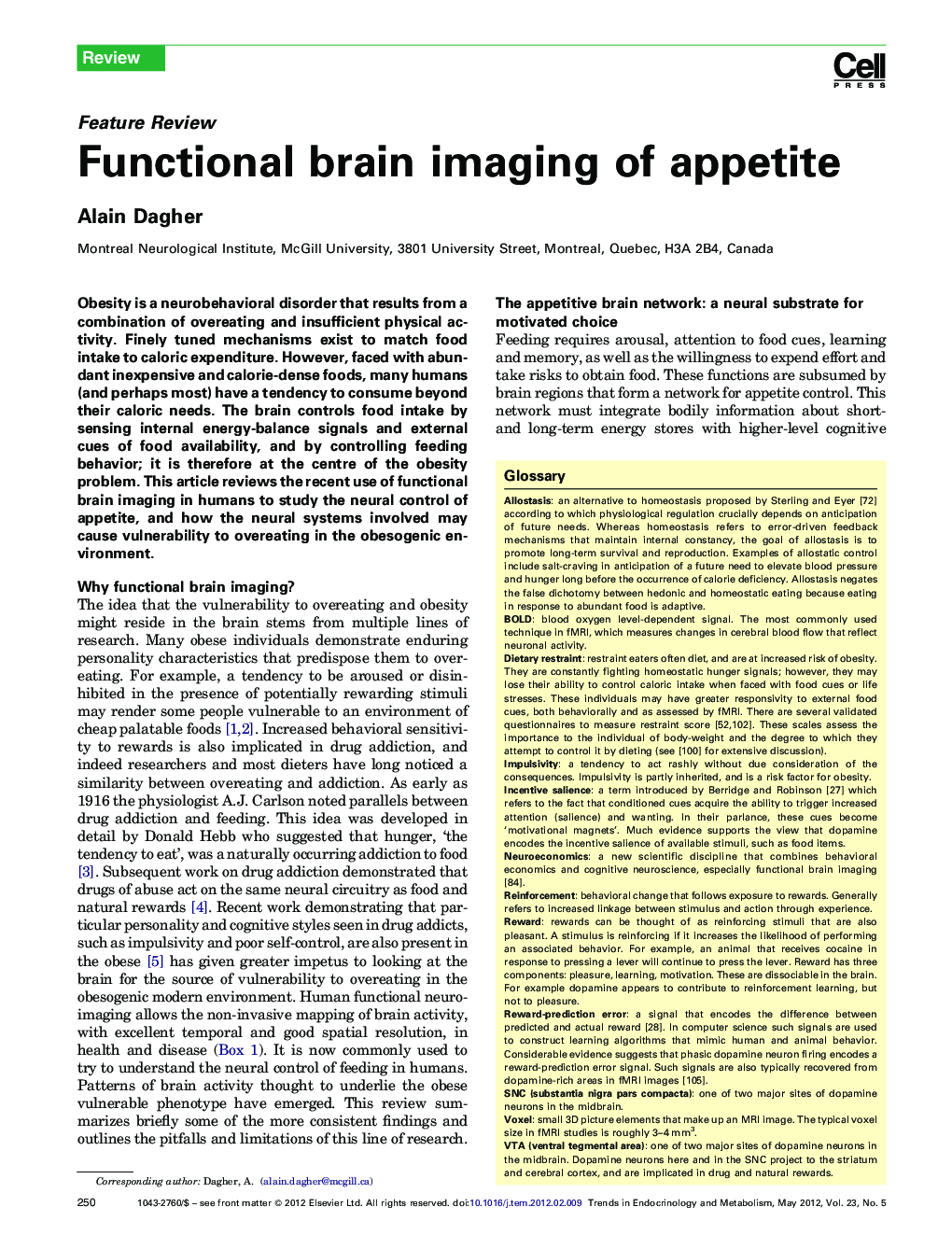| Article ID | Journal | Published Year | Pages | File Type |
|---|---|---|---|---|
| 2810457 | Trends in Endocrinology & Metabolism | 2012 | 11 Pages |
Obesity is a neurobehavioral disorder that results from a combination of overeating and insufficient physical activity. Finely tuned mechanisms exist to match food intake to caloric expenditure. However, faced with abundant inexpensive and calorie-dense foods, many humans (and perhaps most) have a tendency to consume beyond their caloric needs. The brain controls food intake by sensing internal energy-balance signals and external cues of food availability, and by controlling feeding behavior; it is therefore at the centre of the obesity problem. This article reviews the recent use of functional brain imaging in humans to study the neural control of appetite, and how the neural systems involved may cause vulnerability to overeating in the obesogenic environment.
